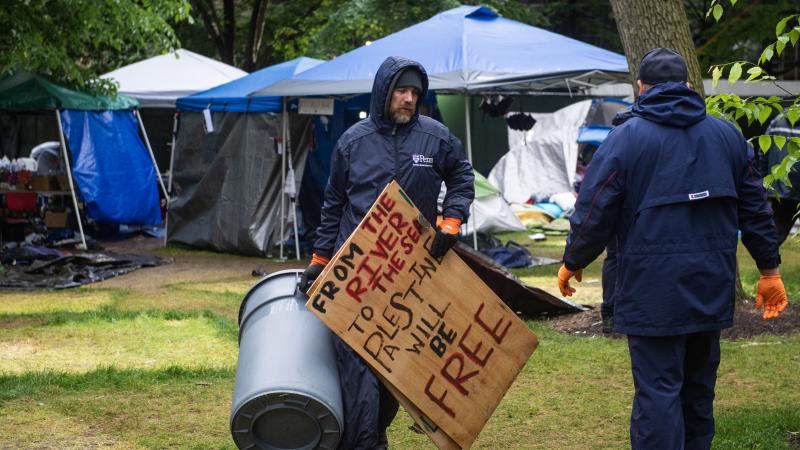Native American exhibits closed down at AMNH in NYC because of new tribal consent regulations
Though the law dates back to 1990, these changes are a response to new federal regulations that were finalized last month and just went into effect this month.
New laws that are meant to honor tribal consent for displaying cultural heritage items have led to the American Museum of Natural History in New York City and other major museums closing down Native American exhibits.
“People come here to learn and see the displays,” a disappointed history buff, Dan Shoop, 60, told the New York Post as he walked around the newly abandoned halls of the iconic museum.
“If it’s not on public display, it robs the people of a chance to learn about a culture of great historic importance to this country.”
The evacuation of the displays began shortly after museum director Sean Decatur announced the changes in a letter to staff Friday morning.
“The halls we are closing are artifacts of an era when museums such as ours did not respect the values, perspectives and indeed shared humanity of Indigenous peoples,” Decatur wrote.
“Actions that may feel sudden to some may seem long overdue to others,” he added.
The actions are in compliance with the 1990 Native American Graves Protection and Repatriation Act (NAGPRA). The AMNH removed the displays of its Native relics and plans to ship them back to the tribes they once belonged to.
Though the law dates back to 1990, these changes are a response to new federal regulations that just went into effect this month.
The Biden administration had pushed to accelerate the repatriation process, which led to the revised regulations that were finalized in December, which the Department of the Interior announced at the time.
While many of the remains and relics were taken from the native peoples without their consent, not everyone is on board with this new policy. The Society for American Archaeology is concerned that “the stipulations were interfering with museums’ collections management practices,” according to the Post.
And there has also been some wariness from tribal leaders who worry that they may not be able to support the flood of new requests from museums, The New York Times said.
The Times noted that last June, at a committee meeting, Scott Willard, who works on repatriation issues for the Miami Tribe of Oklahoma, expressed concerns that the new regulations could make Native remains sound like “throwaway items.”
“This garage sale mentality of ‘Give it all away right now’ is very offensive to us,” he said at the time.
















